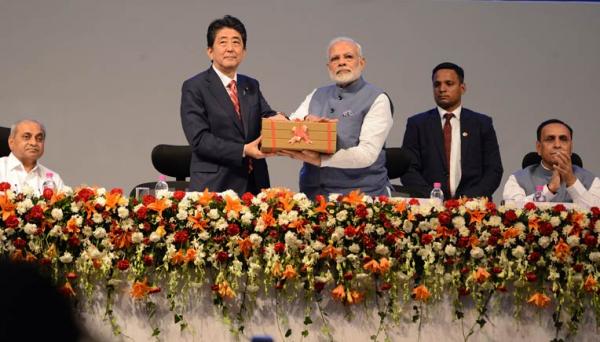Plans to build a lithium-ion battery manufacturing plant in India moved forward this week with a memorandum of understanding to invest INR49 billion ($690 million) signed between a Japanese joint venture and the state government of Gujarat.
Automotive Electronics Power Private Ltd. (AEPPL)— jointly owned by Japanese firms Suzuki Motor (50%), Toshiba (40%) and Denso (10%)— plan to build a lithium-ion battery production facility in Hansalpur, in the state’s Ahmedabad district.
Once completed in 2025, the plant expects to produce 30 million cells per year to Maruti Suzuki and Suzuki Motor Gujarat.
The first stage of the project will include setting up production lines for battery packs and modules by the end of 2020.
The foundation stone of the project was laid in April 2017 during a meeting between Japanese prime minister Shinzo Abe and his India counterpart Nerandra Nodi (pictured from left) .
In July, the Tata Group pledged INR40 billion (US$600 million) towards building a lithium-ion battery manufacturing plant in Gujarat. A 126-acre parcel of land in the area has already been secured for the plant, which could boast up to 10GW of capacity.
In March, India’s union cabinet approved the setting up of a National Mission on Transformative Mobility and Battery Storage, to drive clean, connected, shared, sustainable and holistic mobility initiatives.
The five-year phased manufacturing programme aims to support setting up a 50GW (raised from 40GW) of manufacturing capacity up to 2024.
The government is open to tenders to set up a 50GW battery manufacturing base at around $50 billion investment.
To achieve its goal the government is offering financial incentives in the form of subsidies and duty cuts, which could include export duty waivers or cuts for eight years. Successful bidder companies have until 2020 to set up production facilities, and can apply incentives until 2030.












